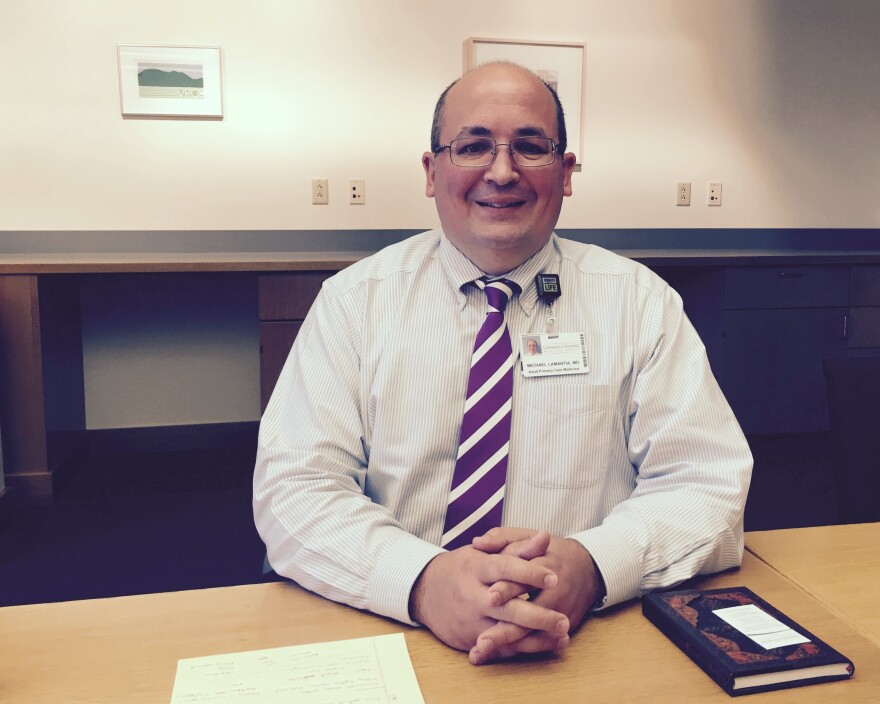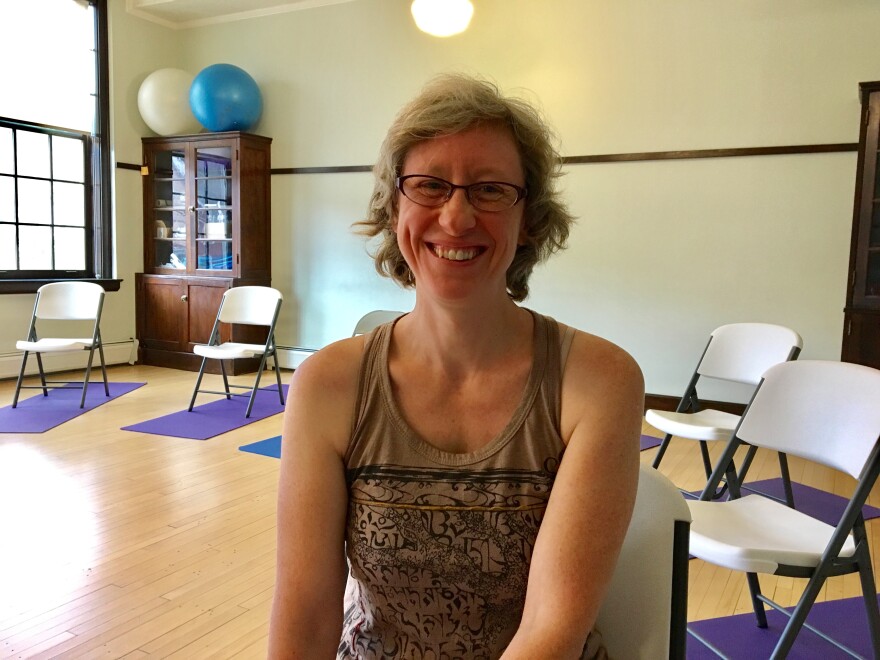When it comes to health care, studies show that people over 65 use far more services than younger people, but some new research is pointing at ways to reverse that trend.
Blue Cross and Blue Shield of Vermont has done extensive research on the use of health care services based on a person's age.
Don George, the president of Blue Cross, says 80 percent of Vermonters between 55 and 64 have at least one chronic condition like diabetes, heart disease, or hypertension.
"The main picture here is that as we age we use more health care services,” George explains, “but we do because our health status declines and we contract chronic conditions, which are really preventable if we engaged in more healthy behaviors early in life.”
And George says the research also reveals some surprising – and promising – news: Of those over 55 without a chronic condition — that’s about 20 percent of the people in this age group — health care expenses are much lower. The health care costs for that group are about on par with people in their 30s.
George says his company is motivated to dispell the "myth" that health care costs rise with age and spread the message “that as we age we don't necessarily need to consume more healthcare services."

The Montpelier Senior Activity Center serves many area baby boomers. Laura Morse,who retired from a career in high tech, teaches one of the most popular classes at the center, called Bone Builders.
"If your legs are stronger, then your balance is going to be better,” Morse explains, “because that's what we lose and also we work on the core strength so those muscles also help us stay upright."
Monica Hutt is the Commissioner of the Vermont Department of Disabilities, Aging and Independent Living.
For those over 55 without a chronic condition, health care costs are on par with individuals in their 30s.
Hutt says prevention programs like the Bone Builders class directly address one of the most serious healthcare issues facing people over 65: falling.
She says falls are the leading cause of injury-related deaths, hospitalizations and emergency room visits for people over 65.
"It's an issue and a condition that is completely preventable,” says Hutt. “It's of epidemic proportion and it's preventable."
Aging Well
“When I think about aging well and really planning for our strength and vitality into the future, there are concrete ways to do that, that I think will really impact this concept and the conversation around health care,” says Hutt.
According to Dr. Michael LaMantia at the University of Vermont Medical Center, primary care providers are a crucial part of that conversation.

LaMantia says when patients and their doctors talk about health care goals, there can be dramatic results.
“When the conversation centers around those types of issues,” LaMantia explains, “I really have seen people sometimes make great changes in their health even at age 65."
LaMantia says there are health benefits to being involved in community activities, even if they aren't activities like Bone Builders.
"Stay social, get out there and see other people in the community,” he says. “Human beings, we're social by nature and we need that type of contact with each other in order to keep that brain sharp."
Aging Providers
As Vermont's population grows older, so do many of the state's health care providers.
Of the nearly 1,900 physicians working in primary care in Vermont, 30 percent are over 60 and will likely retire in the next five years.

Human Services Agency Secretary Al Gobeille says this situation poses an enormous challenge to the state.
"It's all happening in real time and it's all the same group of people called Vermonters,” Gobeille says. “Making sure that we have enough providers to take care of us needs to be a focus but also a real challenge in the coming years."
30 percent of Vermont's primary care physicians are over 60 and will likely retire in the next five years.
Paul Harrington, executive vice president of the Vermont Medical Society, says the baby-boomers are also going to need the services of additional specialists, physician assistants, and nurses in the coming years.
Finding Balance
Sarah Parker-Givens leads one of the hot ticket activities at the Montpelier Senior Activity Center: yoga.
She says the class offers many benefits.
"Physically, it's helped me with back issues, chronic back pain,” Parker-Givens says. “It's really helped me with that but it's also helped me mentally and just helped me be happier and able to cope with things."
When it comes to health benefits, the center’s communications director Dan Groberg says focusing on an aging population has definitely paid off.
"More than 80 percent of our participants tell us that they feel healthier as a result of their participation here,” says Groberg. ‘And that's really why we exist is to help people live more fulfilling and healthy lives.”

The Montpelier Senior Activity Center and others like it across the state say their membership is growing sharply as people in the baby-boom generation retire from the workforce.
And by all accounts, seniors are focusing more on their health, and when possible are working to maintain a sense of community as well as tackle new intellectual and physical challenges in their later years.
Aging Well is an ongoing special series from VPR exploring how the baby boom generation is viewing retirement and changing the future makeup of Vermont.






